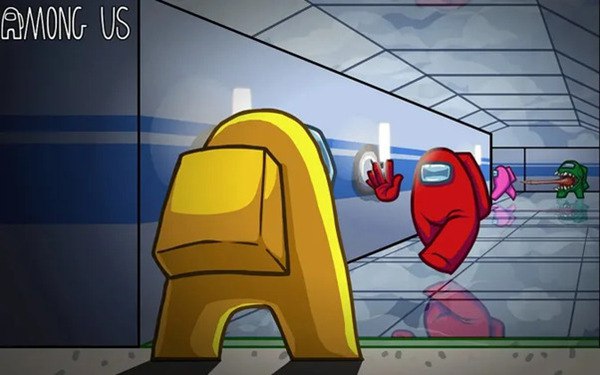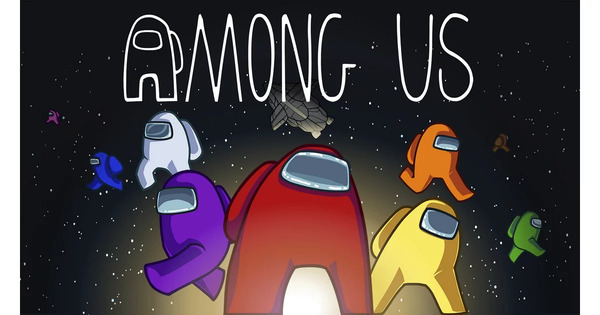Advertisement
Popular Now
Among Us, the social deduction game developed by InnerSloth, has captivated millions of players worldwide since its release. While the game’s primary objective is simple—Crewmates complete tasks while the Impostor attempts to eliminate them without detection—its depth lies in the intricate social dynamics that unfold during gameplay. This article will delve into the specific issue of deception within Among Us, focusing on how players use manipulation and trust as tools for strategy. By exploring various aspects, including communication styles, psychological principles, and the implications of mistrust, we can gain a richer understanding of the complexities that make Among Us a compelling experience.
 Deception in Among Us involves misleading other players about one’s intentions or actions. This can take many forms, including outright lies, manipulation of information, or misrepresentation of actions.
Deception in Among Us involves misleading other players about one’s intentions or actions. This can take many forms, including outright lies, manipulation of information, or misrepresentation of actions.
 Trust is a vital component of Among Us, particularly for Crewmates who must work together to identify the Impostor. However, trust is fragile and can be easily undermined by deception.
Trust is a vital component of Among Us, particularly for Crewmates who must work together to identify the Impostor. However, trust is fragile and can be easily undermined by deception.

 Players often employ persuasive tactics to sway others’ opinions, which is especially important for both Crewmates and Impostors.
Players often employ persuasive tactics to sway others’ opinions, which is especially important for both Crewmates and Impostors.

The Nature of Deception in Among Us
At its core, Among Us is built around deception, where players must navigate a web of lies to achieve their goals. Understanding how deception functions within the game is essential to grasp its overall dynamics.Defining Deception
 Deception in Among Us involves misleading other players about one’s intentions or actions. This can take many forms, including outright lies, manipulation of information, or misrepresentation of actions.
Deception in Among Us involves misleading other players about one’s intentions or actions. This can take many forms, including outright lies, manipulation of information, or misrepresentation of actions.
Types of Deception
- Active Deception: This includes lying about task completion or whereabouts, which is common for Impostors trying to evade suspicion.
- Passive Deception: This occurs when players allow others to draw incorrect conclusions based on incomplete information, often seen when a Crewmate stays quiet during discussions.
The Role of Impostors
Impostors are the primary agents of deception in Among Us. They must blend in with Crewmates while secretly working to eliminate them. This duality creates a unique tension as they engage in both cooperation and betrayal.Key Impostor Strategies
- Alibi Construction: Impostors often complete tasks near other players to build trust and provide a plausible alibi.
- Sabotage: By sabotaging tasks or critical systems, Impostors can create chaos, allowing them to make kills without being detected.
- Deflection: When accused, Impostors frequently redirect suspicion toward others, leveraging the group’s dynamics to their advantage.
The Importance of Trust
 Trust is a vital component of Among Us, particularly for Crewmates who must work together to identify the Impostor. However, trust is fragile and can be easily undermined by deception.
Trust is a vital component of Among Us, particularly for Crewmates who must work together to identify the Impostor. However, trust is fragile and can be easily undermined by deception.
Building Trust Among Crewmates
Crewmates need to establish trust to collaborate effectively. This requires open communication and transparency, which can be difficult in a game where anyone could be the Impostor.Strategies for Trust Building
- Shared Task Completion: Working in pairs or small groups can help establish mutual alibis.
- Consistent Communication: Regularly sharing observations and suspicions fosters a collaborative environment.
- Behavioral Analysis: Paying attention to how players act during discussions can help identify potential Impostors.
The Erosion of Trust
The very nature of deception can lead to a breakdown of trust among players. A single false accusation can fracture relationships and create a hostile environment.Consequences of Mistrust

- Social Isolation: Players accused of being the Impostor may become isolated, making it harder for them to defend themselves.
- Escalating Tensions: Accusations can lead to heated discussions, creating a stressful atmosphere that impacts decision-making.
- Groupthink: The desire to conform can lead players to vote against their better judgment, resulting in poor decisions.
Communication: The Backbone of Gameplay
Effective communication is crucial in Among Us. It serves as the primary means for players to share information and persuade others, shaping the flow of the game.The Role of Communication
Communication in Among Us occurs primarily through text during meetings, where players discuss their suspicions and observations. The effectiveness of this communication can greatly influence the outcome of each round.Key Communication Strategies
- Evidence-Based Accusations: Presenting specific instances of suspicious behavior can strengthen a player’s argument.
- Clarity and Conciseness: Keeping statements clear and to the point helps prevent misunderstandings.
- Respectful Dialogue: Maintaining a respectful tone can foster a more constructive discussion, encouraging others to share their thoughts.
The Art of Persuasion
 Players often employ persuasive tactics to sway others’ opinions, which is especially important for both Crewmates and Impostors.
Players often employ persuasive tactics to sway others’ opinions, which is especially important for both Crewmates and Impostors.
Persuasive Techniques
- Appealing to Emotions: Evoking feelings of sympathy or fear can effectively influence group decisions.
- Building Consensus: Encouraging players to agree on a particular line of reasoning can create a stronger collective opinion.
- Creating Doubt: Impostors can plant seeds of doubt about other players’ credibility, shifting suspicion away from themselves.
Psychological Aspects of Deception
The psychological dynamics of deception play a significant role in how players interact in Among Us. Understanding these principles can provide insights into player behavior.Cognitive Dissonance
Cognitive dissonance occurs when players hold conflicting beliefs, particularly when accusing someone they like or respect. This internal conflict can affect decision-making.Effects on Gameplay

- Overthinking: Players may hesitate to accuse someone due to personal connections, leading to missed opportunities to identify the Impostor.
- Justification: Players might rationalize their decisions post-game, creating narratives that align with their actions to alleviate guilt.
The Influence of Nonverbal Cues
While Among Us is primarily text-based, players still rely on written cues, such as tone and timing, to gauge trustworthiness.Indicators of Deception
- Delayed Responses: A hesitant reply may suggest uncertainty or guilt.
- Inconsistencies: Players who frequently change their stories can raise suspicion.
- Tone Interpretation: Players often misinterpret sarcasm or defensiveness, leading to misunderstandings.
The Impact of Group Dynamics
Among Us is a social game where group dynamics heavily influence player interactions and decisions. Understanding these dynamics can help players navigate the complex landscape of trust and deception.The Dynamics of Accusations
Accusations can create a ripple effect within the group, impacting how players view one another. The way accusations are made and received can lead to either collaboration or conflict.Factors Influencing Accusation Outcomes
- Charismatic Leadership: A persuasive player can sway the group, regardless of evidence.
- Social Pressure: Players may feel compelled to conform to the majority, leading to rushed decisions.
- Emotional Appeal: Players who evoke strong emotions can manipulate group opinions effectively.
Managing Conflict
Conflict is inevitable in Among Us, but how players manage these conflicts can significantly impact the game’s flow and enjoyment.Conflict Resolution Techniques
- Encouraging Diverse Opinions: Allowing all players to voice their thoughts can prevent mob mentality.
- Grounding Discussions in Evidence: Focusing on observable behavior can lead to more rational decision-making.
- Providing Time for Reflection: Allowing players to think before voting can reduce hasty conclusions.
The Evolution of Player Strategies
As players become more experienced with Among Us, their strategies evolve. This adaptation reflects a deeper understanding of the game's mechanics and social dynamics.Adapting to Gameplay Trends
Experienced players often refine their tactics based on previous experiences and observed behaviors, leading to a more competitive atmosphere.Emerging Strategies
- Meta-Gaming: Players share knowledge about effective strategies, enhancing collective gameplay.
- Pattern Recognition: Observing players’ tendencies can help skilled players identify the Impostor based on behavioral cues.
The Role of Online Communities
Online platforms and streaming services have shaped how players engage with Among Us. The exchange of strategies and experiences fosters a competitive environment that influences gameplay.Implications for Player Behavior
- Shared Knowledge: Players learn from each other, leading to a more informed player base.
- Increased Competition: The desire to outperform others can heighten tension and introduce more sophisticated strategies.
Ethical Considerations in Deception
The use of deception in Among Us raises important ethical questions about player interactions and the impact of manipulative behavior.The Ethical Implications of Deception
While deception is integral to the game, players must consider its implications on the social dynamics within their group.Ethical Dilemmas
- Toxic Behavior: Excessive manipulation or bullying can create a hostile environment, detracting from the game’s enjoyment.
- Emotional Impact: Exploiting players’ feelings for strategic gain can lead to lasting resentment and negatively affect group dynamics.
Promoting a Positive Community
Developers and community leaders play a crucial role in fostering a respectful gaming atmosphere. Encouraging players to engage ethically can enhance the overall experience.Strategies for Community Building
- Clear Codes of Conduct: Establishing guidelines for behavior helps set expectations for players.
- Encouraging Empathy: Fostering an understanding of the impact of actions on others can create a more inclusive community.

















